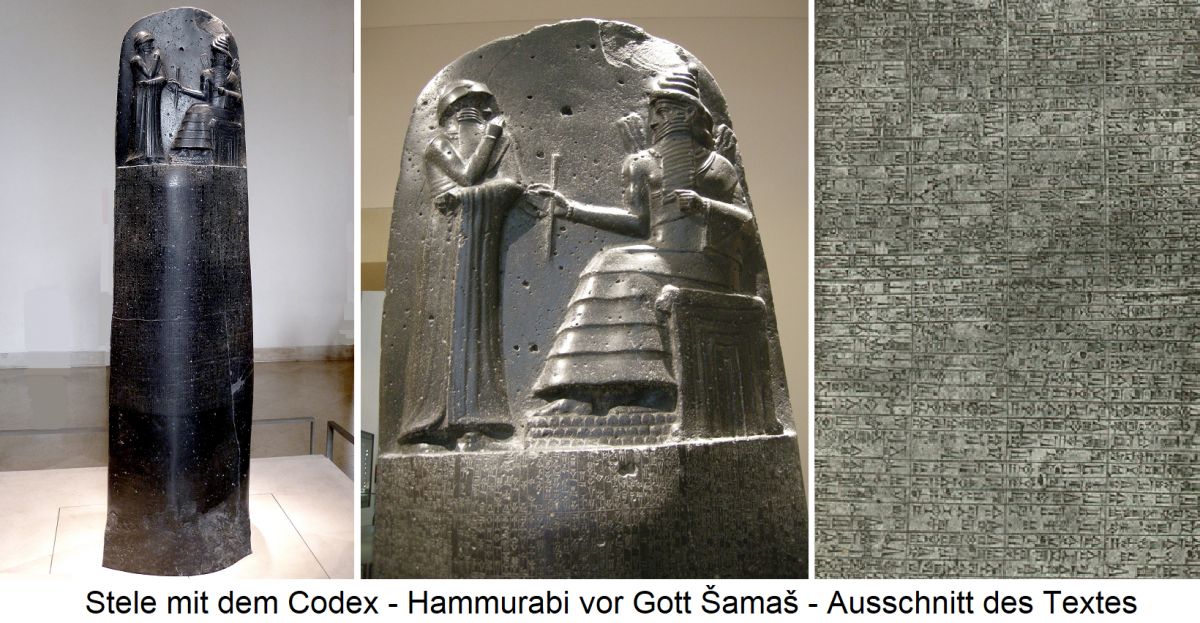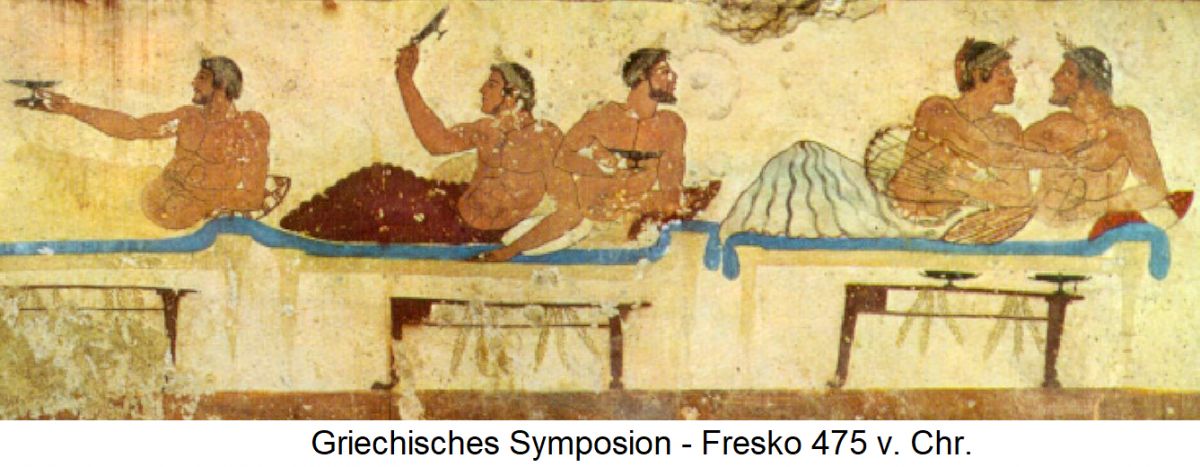See under drinking culture.
Drinking culture
In all cultures around the world, there has always been a culture of drinking as well as eating. Wine in particular has always been more than just a stimulant, but also a medicine, antiseptic, aphrodisiac, preservative, comforter, source of strength, medium of inspiration, symbol of sacrifice, component of rituals, festivals and contracts and in many religions a sacred medium with which a relationship to God or the gods was established in a mystical way.
Oldest wine law "Codex Hammurabi"
The "Codex Hammurabi", a collection of laws written by the Babylonian king Hammurabi (1728-1686 BC), which according to Sumerian tradition was inspired by the sun god Šamaš, states that wine is one of the most precious things in the world: Wine is one of the most precious gifts on earth. So it demands love and respect, we have to show it respect.
However, beer, which is easier to produce, was probably the first alcoholic beverage to be brewed in early civilisations, at least more than 6,000 years ago, before wine. Mesopotamia, Transcaucasia and/or, according to the latest research, south-east Anatolia in what is now Turkey, bordering Armenia with the famous Mount Ararat, where the biblical Noah is said to have landed after the Flood, are regarded as the cradles of viticulture.

In Vino Veritas
The popular saying about wine "In vino veritas" (In wine lies the truth), originating from the Greek lyricist Alcaeus (7th century BC), superficially expresses that one tells the truth under the influence of wine (alcohol) because this is associated with a reduction in inhibitions (and not that one is "more truthful"). Wine (consumed in moderate quantities) simply helps to change your attitude. You are much more willing to give in to your emotions and are more open and communicative, which (always assuming that you enjoy wine wisely) can have a very positive effect on interpersonal relationships. However, there is a cross-cultural rule, namely the social rejection of solitary alcohol consumption. Positive alcohol consumption is seen as a social activity to socialise and communicate. However, anyone who drinks or enjoys alcohol alone is generally regarded as antisocial and is also suspected of being a drunkard (alcoholic).

Intoxication as a source of inspiration
The consumption of alcohol was often excessive. For many ancient peoples, intoxication was regarded as a special state that enabled direct contact with a higher world and had a religious and mystical character. In Egypt, for example, pharaohs and priests drank to the point of intoxication on feast days, and the unconsciousness that followed excessive consumption was considered sacred and pleasing to God.
According to 1 Samuel 10.5, the Jewish prophets gave oracles in an ecstatic state. In the mysticism of Islamic Sufism and in shamanism, the priest's intoxication plays an important role. The Greek Pythia gave oracles through intoxication caused by earth vapours. The wine of Cleopatra (69-30 BC) was mixed with raw opium and nightshade plants (henbane, mandrake) and was considered an aphrodisiac.

According to the Greek historian Herodotus (482-425 BC), alcoholic intoxication was deliberately used by the Persians under the Achaemenid dynasty (559-331 BC) to discuss and judge important issues and then make decisions. The aim was to switch off reason, promote creativity and discuss arguments and counter-arguments in an informal manner; intoxication served to disinhibit. However, the decisions made...
Voices of our members

The wein.plus encyclopaedia is a comprehensive, well-researched reference work. Available anytime and anywhere, it has become an indispensable part of teaching, used by students and myself alike. Highly recommended!
Dominik Trick
Technischer Lehrer, staatl. geprüfter Sommelier, Hotelfachschule Heidelberg